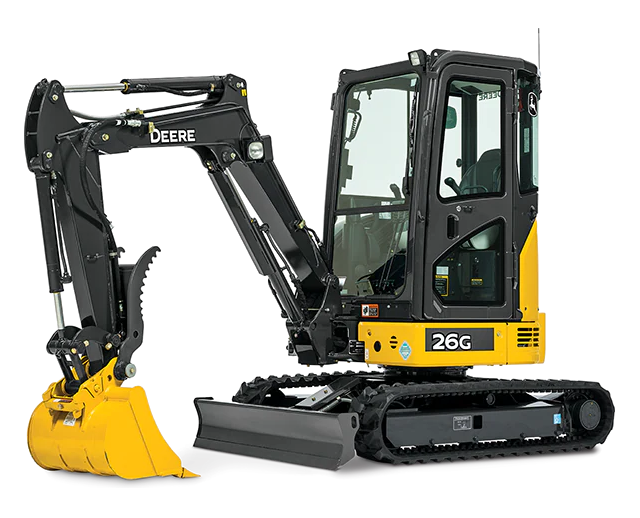Forklift Rental: Heavy Lifting Equipment for Warehousing and More
Forklift Rental: Heavy Lifting Equipment for Warehousing and More
Blog Article
Optimize Your Budget by Understanding the Costs Linked With Building And Construction Devices Leasings
Comprehending the complete scope of expenses connected with building and construction equipment services is crucial for maximizing your spending plan. While the preliminary rental charge may appear straightforward, numerous additional expenses-- such as transportation, fuel surcharges, and maintenance-- can promptly collect, affecting your financial preparation. Being aware of different costs and the details of rental agreements can help stay clear of unanticipated financial problems. What approaches can be employed to effectively handle these costs and make certain a more effective rental experience?
Overview of Rental Prices
When thinking about construction equipment rentals, recognizing the connected prices is vital for effective budgeting and job planning. Rental prices can vary significantly based upon several factors, consisting of tools type, period of rental, and place. The preliminary rental fee frequently mirrors the tools's market demand and its connected operational capacities, influencing the total expense.
Along with the base rental rate, ancillary expenses might occur, such as transport fees, fuel surcharges, and maintenance costs. It is important to account for these extra costs to accurately examine the complete cost of leasing tools. The rental duration can influence pricing; longer rentals may qualify for affordable prices, while temporary leasings might sustain greater everyday fees.

Failure of Rental Rates
A comprehensive understanding of rental rates is vital for specialists and project supervisors intending to enhance their budget plans. Rental rates for building equipment usually include a number of elements, including base rates, time-based costs, and use fees.
Base rates are the core costs linked with the leasing of the devices, typically identified by the kind and dimension of the machinery. These rates can differ substantially, influenced by aspects such as devices demand, schedule, and local market fads. Time-based fees, which may be daily, weekly, or monthly, offer to fit different task timelines and rental periods.
Furthermore, rental rates may consist of usage costs, which apply when equipment is utilized past a defined threshold, ensuring that the rental firm can represent deterioration. Seasonal demand variations can likewise influence rental prices, with peak construction seasons typically regulating higher rates.
Moreover, comprehending the rental business's plans concerning upkeep and insurance coverage can offer further insight right into the general cost framework. By assessing these components, specialists can make enlightened choices, making sure the choice of rental equipment straightens with both project needs and budget constraints.
Added Costs to Consider
Comprehending the complexities of additional fees is vital for contractors to manage their overall rental costs properly. Past the basic rental rates, different auxiliary fees can significantly impact the total cost of equipment rental. These costs typically include shipment and pickup fees, which can vary based on range and logistics entailed in transporting the equipment to and from the job site.
In addition, some rental business might impose gas surcharges if the devices is returned with less fuel than when rented. It is also vital to recognize potential cleansing costs, specifically for specific devices that requires comprehensive maintenance after use.

Thoroughly assessing the rental arrangement and clearing up these additional fees ahead of time can assist professionals make sure and prevent unanticipated expenses that spending plans continue to be intact throughout the task lifecycle.
Upkeep and Repair Work Expenditures
Routine repair and maintenance expenses are frequently overlooked factors that can substantially influence the total expense of construction devices rentals. When leasing equipment, it is crucial to think about not just the rental fees yet also the prospective costs connected with maintaining the machinery in optimal operating problem.
Lots of rental companies include standard maintenance as part of the rental arrangement; nevertheless, more unexpected malfunctions or extensive fixings can lead to extra costs. It's vital to examine the rental agreement carefully to comprehend what maintenance solutions are covered and what responsibilities drop on the renter.
In addition, tools that is not well-kept can lead to ineffectiveness on the work website, potentially increasing and causing delays project costs. To reduce these threats, it is suggested to conduct regular evaluations and preserve open communication with the rental copyright concerning any type of problems that develop during use.
Insurance and Obligation Prices
Insurance policy and responsibility prices are essential parts that can significantly influence the general cost of building devices rentals (equipment rental company). These prices ensure that both the rental business and the customer are secured from prospective financial losses arising from mishaps, damage, or theft during the rental period

Furthermore, clients ought to be aware of any type of deductibles or exclusions in the insurance coverage policy, as these can second hand excavator for sale affect prospective out-of-pocket expenses. Comprehending the terms of any kind of insurance protection is vital to prevent unexpected expenses. Inevitably, budgeting for insurance and responsibility expenditures can help ensure a smoother rental experience and secure versus economic dangers related to building tasks.
Conclusion
In verdict, a comprehensive understanding of the prices linked with building and construction tools services is crucial for reliable he has a good point budget plan monitoring. Eventually, notified decision-making regarding devices leasings contributes to the total success of construction undertakings.
Rental expenses can vary substantially based on numerous variables, consisting of tools kind, period of rental, and location (aerial lift rental). The rental duration can impact prices; longer leasings might certify for discounted prices, while short-term rentals could sustain higher day-to-day fees
By conducting thorough study and engaging with trusted rental companies, service providers can successfully navigate the intricacies of rental pricing, inevitably optimizing their financial resources.
Beyond the common rental rates, numerous supplementary costs can substantially impact the overall price of devices service. Rental companies often give obligation insurance policy that covers injuries to third events or damages to building, while equipment damages insurance can cover the expense of repairs or replacement if the rented out equipment is damaged.
Report this page